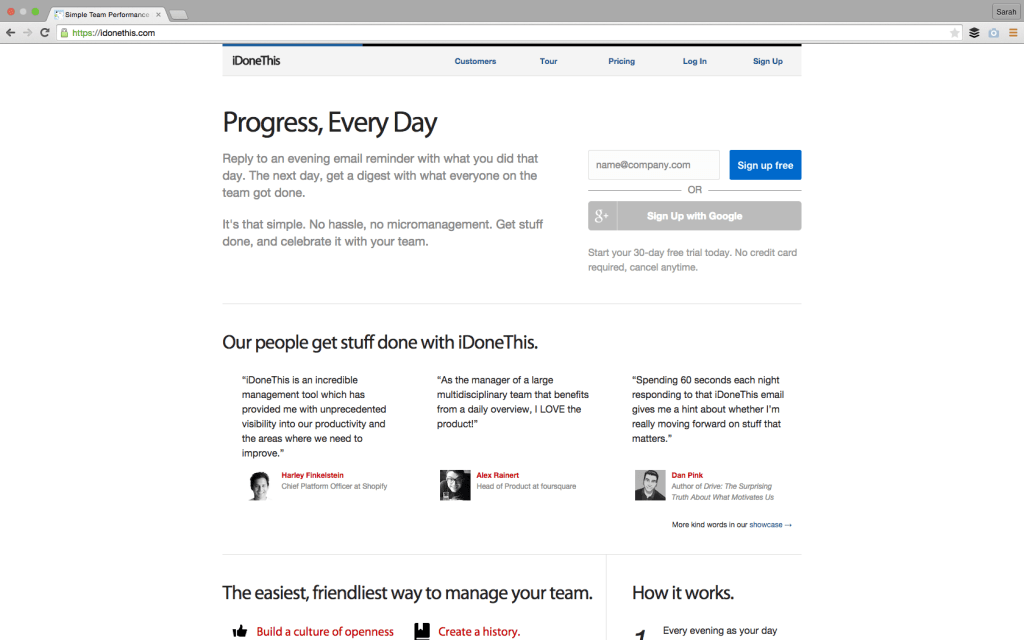Using Customer Stories to Win New Construction Business
No matter what industry you’re in, great customer stories and testimonials will always help you win more construction business. Three small-business leaders reveal how incorporating customer stories into their marketing helped them increase sales and win over new customers.
Have you ever noticed that the marketing of your favorite product seems targeted specifically to you and your friends? Yes, it’s intentional. And, after hearing a story about how a challenge similar to your own was solved by a new service, how much more likely are you to give the service a try? Pretty high, I bet. From case studies and user-generated content campaigns to testimonials and online reviews, customer stories can be incredibly powerful tools to catch the eye of specific customer segments, persuade new buyers and quickly close sales.
Table of Contents
Social Proof and Credibility
Customer stories can establish immediate trustworthiness and reputation. That’s why so many software marketing sites put customer stories front and center both on landing pages and throughout marketing materials and content, from blogs to social media advertising.
“Fundamentally, we’re successful when our customers are successful. That’s why customer success stories are such a powerful tool,” explains Walter Chen, CEO of iDoneThis, a lightweight productivity software used by teams at companies such as Foursquare, Buffer and Shopify.
“It can be hard for companies to even know what’s possible and what their goals should be. That’s why we share case studies and speak to real-life examples during pitches. These examples show how we drive results that clients can get excited about.”

By placing testimonials on the iDoneThis landing page from notable individuals and influencers such as Dan Pink, bestselling author of Drive: The Surprising Truth of What Motivates Us, and Roland Osborne, founder of Olark, iDoneThis builds immediate credibility with new site visitors and potential customers. Not only does such use of customer stories demonstrate the success of its customers, aligning the product with socially and culturally prominent users establishes “social proof”—a factor that research shows is highly influential in customer decision making.

Influence isn’t the only criteria for a strong customer story; relevant stories seem to be what matter most. For example, iDoneThis found that geographic-specific customer stories performed best.
“We did an interesting test where we sent sales emails to a geographic area [in which] we mentioned in our sales copy the customers we had in that geographic area,” Chen says. “For example, we emailed Boston-based startups about iDoneThis, and we mentioned that Boston-based Wistia uses iDoneThis and how they use us. We emailed Ottawa, Canada-based startups and mentioned that Shopify uses iDoneThis and how they use us. Those emails were among our best converting emails and helped us start a conversation with a human connection.”
Similarly, Emily Chong, vice president of partnerships at NationSwell, always includes stories of specific customers while pitching paid memberships for the NationSwell Council, a private community of professionals who are passionate about service. She explains that if the membership lead was a nonprofit leader, she’d share stories of other high-profile nonprofit leaders who are also council members, and so on.
The psychology behind this use of customer stories can be powerful. “We include stories of current council members during our membership sales process to create association,” Chong says. “Our potential members’ self-identification or aspirational identification makes them want to be a member and helps us to close the sale.”
Demonstrate Use Cases
Customer stories can be especially powerful for services and products that are unfamiliar, complicated, volatile or at a higher price point. For example, while social media marketing may seem commonplace, it’s still a new marketing channel for many brands, and the industry is constantly evolving.
That’s why Mae Karwowski, CEO of Obviously Social, a social media marketing agency focused on strategy and influencer marketing, always includes relevant case studies in new client pitches. “It can be hard for companies to even know what’s possible and what their goals should be,” Karwowski says. “That’s why we share case studies and speak to real-life examples during pitches. These examples show how we drive results that clients can get excited about.”

Karowowski claims that customer stories are “essential” to closing deals. “When I share past success stories, I can see that they grasp what [Obviously Social is] doing and what we’re capable of,” she says. “That lights a spark in them, and they realize that we can really improve their business through social media.”
With the options for new business more competitive than ever, why wouldn’t you use customer stories? The benefits are numerous: credibility, social proof, and clear use cases. Of course, the onus is on you to deliver products and services worthy of a good story!
Photos (from top): Getty Images; Courtesy of iDoneThis!, Obviously Social

